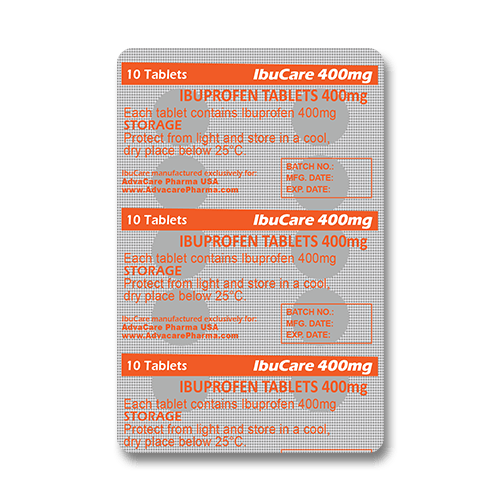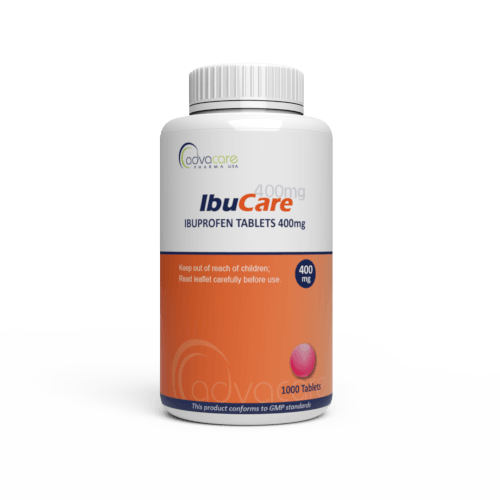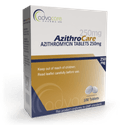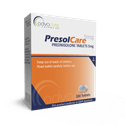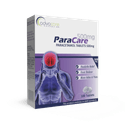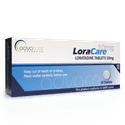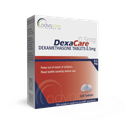- Home›
- Pharmaceuticals›
- Pharmaceutical Tablets›
- Ibuprofen Tablets
Ibuprofen Tablets
Dosage
Packaging
What is Ibuprofen?
Active Ingredients: Ibuprofen
Ibuprofen Tablets are a non-steroid anti-inflammatory drug (NSAID) used to reduce pain and inflammation that is associated with migraines, dysmenorrhea, rheumatoid arthritis, osteoarthritis, and toothaches. Ibuprofen is also used to reduce fever and to treat symptoms of the cold and flu.
Ibuprofen is in the analgesic and antipyretic class of medications. It is derived from propionic acid and was first developed in 1960 as a safer alternative to aspirin. The exact mechanism of action of ibuprofen is unknown. As an NSAID, ibuprofen acts as a non-selective inhibitor of cyclooxygenase (COX-1 and COX-2), which are enzymes involved in the synthesis of prostaglandin and thromboxane. These hormones are responsible for mediating pain, fever, swelling, and blood clotting signals, and their inhibition results in ibuprofen’s analgesic, antipyretic, and anti-inflammatory effects.
AdvaCare Pharma is a global distributor and manufacturer of Ibuprofen Tablets and Ibuprofen Gel. Our supply chain is thoroughly vetted to ensure it meets health, safety, and environmental standards. Ibuprofen Tablets are produced in our GMP-certified facilities in China, India, and the USA.
Why are we a trusted Ibuprofen manufacturer?
We are a Ibuprofen manufacturer engaged in the global distribution of 200+ oral solid pharmaceutical products in tablet dosage form.
As an American-owned and operated company, we are devoted to the manufacture and supply of superior quality, yet cost-effective pharmaceuticals to improve access to healthcare solutions worldwide. AdvaCare Pharma manufactures Ibuprofen Tablets, and over 500 other pharmaceutical treatments, according to strict GMP regulations as part of our global commitment to bring efficacious medicines to pharmaceutical distributors, hospitals, pharmacies and other medical institutions.
Uses
What is Ibuprofen used for?
It is used to reduce pain and inflammation caused by many conditions, such as headaches, muscle aches, arthritis, dysmenorrhea, and more. It is also used to temporarily relieve fevers.
How should Ibuprofen Tablets be used?
This medication is intended to be taken orally. Ibuprofen Tablets should be taken with a glass of water. They can be taken with food or milk to prevent upset stomach.
What dose should be taken and for how long?
For the treatment of fever, pain, and aches from headaches, toothaches, dysmenorrhea, arthritis, and other conditions, the recommended dose for adults and children (≥ 12 years) is 200-400mg every 4-6 hours while symptoms persist. Do not exceed a single dose of 800mg or a maximum daily dosage of 3200mg. Long-term (≥ 30 days) use of ibuprofen is not recommended.
The dosage is based on medical condition, response to treatment, age, and weight. Refer to a doctor or pharmacist for guidelines on dosage. Do not exceed what they advise.
Who can use Ibuprofen?
Ibuprofen can be administered to adults and children (≥ 12 years), but caution is advised for specific groups of patients.
Pregnant Ibuprofen is not recommended for use during pregnancy past 20 weeks gestation. Taking NSAIDs like ibuprofen after 20 weeks of pregnancy can potentially result in serious fetal harm, including the development of heart and kidney problems which could lead to low amniotic fluid levels, and adverse pregnancy outcomes.
Ibuprofen should only be used during pregnancy if the potential benefit justifies any potential risk to the fetus and there are no alternative therapies. The lowest effective dose and the shortest duration possible should be used.
Nursing Ibuprofen is excreted in human milk in small amounts. Adverse infant events have not been reported in patients taking ibuprofen while nursing. The benefits of nursing while taking ibuprofen generally outweigh the risks.
Pediatric In pediatric patients < 12 years old, Ibuprofen Tablet use is not recommended.
Ibuprofen use is contraindicated in preterm infants with infection, certain congenital heart diseases, active bleeding, thrombocytopenia, coagulation disorders, necrotizing enterocolitis, significant renal insufficiency.
Geriatric Studies have not found evidence that adults ≥ 65 years old respond differently to ibuprofen than adults < 65 years old.
Due to the increased risk of internal bleeding associated with NSAID use, dosing in geriatric patients should be reduced and done with caution because of age-related decreases in hepatic, renal, and cardiac function and concomitant disease and drug therapy. Close observation is recommended.
Are Ibuprofen Tablets the same as Paracetamol Tablets?
Ibuprofen and Paracetamol are both widely used over-the-counter medications for pain relief and fever reduction, but they differ in their mechanisms of action. Ibuprofen, classified as a nonsteroidal anti-inflammatory drug (NSAID), inhibits the production of specific chemicals causing inflammation in the body. This dual action makes ibuprofen effective not only for pain relief but also in reducing inflammation and swelling. On the other hand, Paracetamol primarily acts on the central nervous system to alleviate pain and reduce fever, making it a suitable choice for various conditions. It is essential to consider individual health conditions, potential side effects, and seek guidance from healthcare professionals for the proper use of each medication.
Other contraindications
In cases of severe renal disease or dysfunction, dosage adjustment is not necessary. Long-term NSAID use can result in renal papillary necrosis and other renal injury. Renal function monitoring is advised in cases of prolonged NSAID use and severe renal impairment. Patients with renal dysfunction, heart failure, liver dysfunction, who are taking diuretics and ACE inhibitors, or are older are at an increased risk of renal toxicity resulting from dose-dependent decreases in prostaglandin formation and renal blood flow. These toxic renal effects are usually reversible after NSAID discontinuation.
Patients should be evaluated for hepatic dysfunction if signs or symptoms of liver dysfunction develop. Ibuprofen should be discontinued if liver disease or systemic manifestations of liver dysfunction (e.g., jaundice, eosinophilia, rash) develop. Pediatric patients taking doses > 30mg/kg/day or with a history of abnormal liver function resulting from previous NSAID therapy should be monitored for signs and symptoms of liver dysfunction.
NSAIDs, including ibuprofen, can cause serious and potentially life-threatening gastrointestinal (GI) adverse events, including bleeding, inflammation, ulceration, and perforations of the esophagus, stomach, small intestine, or large intestine. Patients who are older, have a history of GI disease or bleeding disorders, consume ≥ 3 alcoholic beverages while taking this medication, or take dosages larger or longer than recommended are at a much greater risk for developing these conditions. Concomitant use of ibuprofen with other NSAIDs, oral corticosteroids, aspirin, anticoagulants, selective serotonin reuptake inhibitors (SSRIs), or serotonin and norepinephrine reuptake inhibitors (SNRIs) can also increase the risk. These serious adverse events can occur at any time, with or without warning symptoms, and only 1 in 5 patients are symptomatic. Most cases involve long-term treatment (3 months-1 year), but short-term use is not without risk. Ibuprofen should be discontinued immediately if a serious GI event is suspected or confirmed. The lowest effective dose should be used for the shortest duration possible to minimize the risk of adverse GI events.
NSAIDs, except aspirin, can increased the risk of serious cardiovascular (CV) thrombotic events, including myocardial infarction and stroke, which can be fatal. NSAIDs can precipitate new hypertension or worsen pre-existing hypertension, which may increase the risk of adverse CV events. The increased risk of adverse CV events from NSAID use appears to be similar in those with and without CV disease or dysfunction, however, those with CV disease or dysfunction had higher incidences of adverse CV effects. These effects can begin as early as the first weeks of treatment and have mostly been observed at higher doses. To minimize the potential risk, the lowest effective dose should be used for the shortest duration possible. There is no evidence that concomitant use of aspirin can mitigate these risks and its use with ibuprofen increases the risk of adverse gastrointestinal events. Ibuprofen should be administered with caution in patients with heart failure, hypertension, or fluid retention.
Ibuprofen use after coronary artery bypass graft is contraindicated due to the increased incidence of myocardial infarctions and strokes with NSAID use following surgery.
If you also take aspirin to prevent stroke or heart attack, taking ibuprofen can make aspirin less effective in protecting your heart and blood vessels. If you take both medicines, take ibuprofen at least 8 hours before or 30 minutes after you take aspirin (non-enteric coated form).
Concomitant use of NSAIDs and some antidepressants may cause easier bruising or bleeding.
Anaphylactoid reactions that require immediate medical attention have occurred in patients taking ibuprofen. Ibuprofen should not be used in patients with aspirin-exacerbated respiratory disease (AERD), asthma, or severe bronchospasms.
Like other NSAIDs, ibuprofen can cause rare, adverse skin events, such as exfoliative dermatitis, Stevens-Johnson Syndrome (SJS), and toxic epidermal necrolysis (TEN), some of which can be fatal and can occur with or without warning. Ibuprofen should be discontinued at the first sign of skin rash or other hypersensitivity reactions.
Side Effects
As with all pharmaceuticals, some unwanted effects can occur from the use of Ibuprofen Tablets.
Common side effects include, but may not be limited to:
- heartburn
- rash
- excessive gas
- nausea or vomiting
- dizziness
Seek medical attention if the following develop:
- confusion
- black or tarry stool or blood in vomit
- hypertension
- unusual swelling in the ankles
- changes in urination
For a comprehensive understanding of all potential side effects, consult a medical professional.
If any symptoms persist or worsen, or you notice any other symptoms, please call your doctor.
Precautions
Do NOT use Ibuprofen Tablets if:
- You are allergic to ibuprofen or other NSAIDs.
- You have heart, liver, or kidney disease.
- You smoke tobacco.
- You have asthma, high blood pressure, high cholesterol, or diabetes.
Before treatment, consult your doctor regarding any medications you are taking to address potential drug interactions.
This medication may not be suitable for people with certain conditions, so it is important to consult with a doctor if you have any health conditions.
References
Efficacy of Nonprescription Doses of Ibuprofen for Treating Migraine Headache. A Randomized Controlled Trial
This is a randomized, placebo-controlled, double-blind trial of 6 hours' treatment duration that is made to evaluate the efficacy and safety of ibuprofen, 200mg and 400mg, compared with placebo and each other for the treatment of pain of migraine headache.
This study included 660 outpatient adults in the age range of 18 to 84 years with migraine headaches. Patients were randomly assigned to receive a single dose of the study medication: ibuprofen 200mg (n=216), ibuprofen 400mg (n=223), or a placebo (n=221). The primary efficacy measures were the percentage of patients whose headache intensity decreased from severe or moderate to mild or none after 2 hours, and the difference in headache pain intensity from baseline at 2 hours. Secondary outcomes included various measures of pain relief, changes in severity from baseline for migraine-associated symptoms (nausea, photophobia, phonophobia, and functional disability), and the percentage of patients whose migraine-associated symptoms were reduced to none.
More patients treated with ibuprofen, 200mg or 400mg, reported mild to no pain after 2 hours (41.7% and 40.8%, respectively), compared to those who received a placebo (28.1%), with a p-value of 0.006. Patients with severe baseline pain intensity were treated with ibuprofen 400mg and it was proven that this drug and dose were significantly superior to placebo for the primary efficacy endpoints (P = 0.048), while ibuprofen 200mg was not. Both ibuprofen 200mg and 400mg were statistically significantly more effective than placebo for all clinically important secondary pain relief outcomes.
The findings from this study indicate that ibuprofen, in doses of 200mg and 400mg, is an effective, affordable, and well-tolerated over-the-counter treatment for migraine headache pain. This drug has also shown beneficial effects on associated migraine symptoms such as nausea, sensitivity to light and sound, and functional disability.

You might be interested in...
Why AdvaCare Pharma?
As an industry leader, we are aware of our responsibility to provide affordable and sustainable solutions to improve healthcare worldwide.

